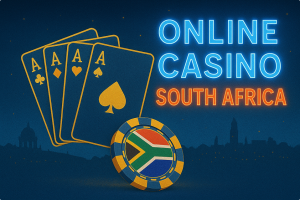
Online Casino South Africa
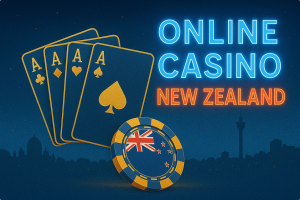
Online Casino New Zealand
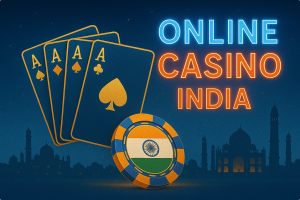
Online Casino India
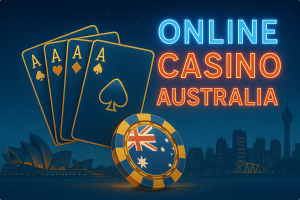
Online Casino Australia
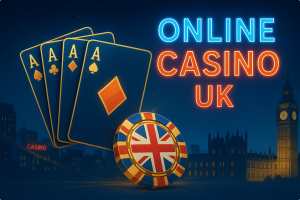
Online Casino UK

Online Casino Canada

Online Casinos
I suppose my top three favorite pieces are:
1. Moonlight Sonata – Mozart
2. Funeral March – Chopin
3. Winter – Vivaldi
I’ve also been listening to a lot more Berlioz lately.
also: i need to listen to more classical
havent really checked out allot of other composers
awesome blog for classical music http://leroisamuse.blogspot.com/
I remember playing this on piano, it was one of the first pieces I taught myself. I had heard it playing the original Resident Evil haha.
Haydn is probably my favorite composer, with his Trumpet Concerto in Eb
if you ever get a chance listen to some of Bach’s "freestyles" on the harpsichord…he did this to warm up before actually playing…its pretty good, and amazing the kind of stuff he allegedly made up on the spot
I tend to overlook how much I like Beethoven, however, being that so many people know of him.
I Also like Carmen Fantasy by Pablo de Sarasate
Frederic Chopin’s Fantasie Impromptu is unbelievably fast, and I love the variations on Ah! vous dirae-je, Maman(A.K.A Twinkle twinkle little star) by mozart.
Johann Sebastian Bach
Georg Friedrich H�ndel
Antonio Vivaldi
Johann Pachelbel
Tomaso Albinoni
Jordi Savall
Johann Sebastian Bach (especially the St. Matthew Passion) Franz Joseph Haydn Wolfgang Amadeus Mozart Ludwig van Beethoven Franz Schubert Hector Berlioz Robert Schumann Felix Mendelssohn Charles Valentin Alkan Richard Wagner Franz Liszt (his late piano pieces) Johannes Brahms Antonin Dvorak Leos Janacek Peter Tchaikovsky Modest Mussorgsky Edvard Grieg Franz Berwald Edward Elgar (not everything but I do love his First Symphony and the Wand of Youth Suites) Gustav Mahler (I don’t like his Seventh or Eighth Symphonies though) Richard Strauss Carl Nielsen Charles Ives Igor Stravinsky Anton von Webern Sergei Prokofiev Silvestre Revueltas (in my opinion one of the greatest composers to emerge from the American continent; superior to Copland, Chavez, Barber, Ginatera, et al) Saburo Moroi (a very great and unjustly neglected Japanese composer; his third and fourth symphonies are genius) Dmitri Shostakovich (especially the Fourth and Fifteenth Symphonies; Lady Macbeth; Third String Quartet) Malcolm Arnold Frank Zappa Steve Reich John Adams Jorge Liderman
But then again so are Chopin’s Funeral March (which ironically nearly got me killed last week), Pachelbel – Cannon in D Major and the ever popular Moonlight Sonata.
Symphony No. 25 in G Minor, too damn good.
I think I’m long overdue for getting into classical music. I find I really do enjoy it, as I do orchestral music in general, but I’m pretty much a newcomer to the subject. I’d like to collect some works to put on my iPod, but the problem is that there’s just so much classical music to choose from, and I’d like to keep how much I download to a minimum.
Where do you guys think I should start? I figure it’d be best to begin with the mainstream stuff (Beethoven, Tchaikovsky, etc) but even then there’s a staggering amount and I’m not downloading or purchasing all of it. All I’m asking for is some advice, suggestions or pointers.
I think I’m long overdue for getting into classical music. I find I really do enjoy it, as I do orchestral music in general, but I’m pretty much a newcomer to the subject. I’d like to collect some works to put on my iPod, but the problem is that there’s just so much classical music to choose from, and I’d like to keep how much I download to a minimum.
Where do you guys think I should start? I figure it’d be best to begin with the mainstream stuff (Beethoven, Tchaikovsky, etc) but even then there’s a staggering amount and I’m not downloading or purchasing all of it. All I’m asking for is some advice, suggestions or pointers.
Yes, I’d begin with the biggies. It sounds obvious, but really it’s the best way to get a feel for things. Even within the output of the likes of Bach, Beethoven, Tchaikovsky etc there are works that are less well known. These guys aren’t ‘mainstream’ in an arbitrary sense or because they’re ‘easy’ – far from it – in many cases they’re the names that crop up because they made such a monumental contribution to music, changed it forever.
Have you checked out the classical thread I linked to above?
Here’s something to start you off:
Thread 74443
Also I’m going to post a compilation of Baroque music soon if that’s of any use 🙂
Thanks for the Beethoven compilation, Lens of Truth. I’ll be sure the download them all once I create more HDD space. Can’t wait to see what you got in store for us with your next compilation.
Spite of that I do enjoy classical music but most of my favourites spawn from the 20th century. Wagner, Stockhausen, Fanelli and my all time favourite Debussy. I mean… Anyone can compose like Mozart but only a few can invent like Mozart.
Just paste these into Youtube. Hope this helps.
Franz Schubert: Piano Sonata in Bb, D. 960: Second Movement
J.S. Bach: Well-Tempered Clavier: Book 1: Prelude and Fugue in C# Minor (get a piano recording)
J.S. Bach: Well-Tempered Clavier: Book 1: Prelude and Fugue in Eb Minor (get a piano recording)
Domenico Scarlatti: Harpsichord Sonata in B Minor, K. 87 (Get the piano recording with Vladimir Horowitz playing)
Beethoven: Piano Sonata No. 8 "Pathetique" in C Minor: Second Movement
Beethoven: Piano Sonata No. 29 "Hammerklavier" in Bb: Third Movement
Beethoven: Piano Sonata No. 32 in C Minor: Second Movement
Alexander Scriabin: Etude in C# Minor, Op. 2, No. 1
Alexander Scriabin: Piano Concerto in F# Minor: Second Movement
Frederic Chopin: Piano Sonata No. 2 "Funeral March" in Bb Minor: Third Movement
Frederic Chopin: Nocturne No. 2 in Eb, Nocturne No. 11 in G Minor, Nocturne in C# Minor (Op. Posth.)
Robert Schumann: Kinderszenen, Op. 15: No. 12 in E Minor – Kind Im Einschlummern (Child Falling Asleep)
Johannes Brahms: Four Ballades, Op. 10: Ballade No. 1 in D Minor, Ballade No. 2 in D, Ballade No. 4 in B
Johannes Brahms: Three Intermezzos, Op. 117: No. 1 in Eb, No. 2 in Bb minor, and No. 3 in C# minor
Johannes Brahms: Four Klavierstucke, Op. 119: No. 1 In B minor, No. 2 in E minor
And, of course, Erik Satie: 3 Gymnopedies, No. 1
Franz Schubert: Piano Sonata in Bb, D. 960: Second Movement
J.S. Bach: Well-Tempered Clavier: Book 1: Prelude and Fugue in C# Minor (get a piano recording)
J.S. Bach: Well-Tempered Clavier: Book 1: Prelude and Fugue in Eb Minor (get a piano recording)
Domenico Scarlatti: Harpsichord Sonata in B Minor, K. 87 (Get the piano recording with Vladimir Horowitz playing)
Beethoven: Piano Sonata No. 8 "Pathetique" in C Minor: Second Movement
Beethoven: Piano Sonata No. 29 "Hammerklavier" in Bb: Third Movement
Beethoven: Piano Sonata No. 32 in C Minor: Second Movement
Alexander Scriabin: Etude in C# Minor, Op. 2, No. 1
Alexander Scriabin: Piano Concerto in F# Minor: Second Movement
Frederic Chopin: Piano Sonata No. 2 "Funeral March" in Bb Minor: Third Movement
Frederic Chopin: Nocturne No. 2 in Eb, Nocturne No. 11 in G Minor, Nocturne in C# Minor (Op. Posth.)
Robert Schumann: Kinderszenen, Op. 15: No. 12 in E Minor – Kind Im Einschlummern (Child Falling Asleep)
Johannes Brahms: Four Ballades, Op. 10: Ballade No. 1 in D Minor, Ballade No. 2 in D, Ballade No. 4 in B
Johannes Brahms: Three Intermezzos, Op. 117: No. 1 in Eb, No. 2 in Bb minor, and No. 3 in C# minor
Johannes Brahms: Four Klavierstucke, Op. 119: No. 1 In B minor, No. 2 in E minor
And, of course, Erik Satie: 3 Gymnopedies, No. 1
Hey, I saw this yesterday, but I haven’t had a chance to listen to them. Going through them now. Thank you so much! All I can say is, "MOAR!! I WANT MOAR!"
Also… Erik Satie: 3 Gymnopedies, No. 1 <- absolute brilliance. Thanks again.
I like mostly the composers of the baroque era.
Johann Sebastian Bach
Georg Friedrich H�ndel
Antonio Vivaldi
Johann Pachelbel
Tomaso Albinoni
Jordi Savall
You know what they say; if it’s not baroque don’t fix it.
Seriously though, the classical thread has a lot of great things you can try.
then theres Tchaikovsky, Dvorak, Liszt, Glinka, Saint-Saens, Bethoven, wagner, Schubert, Paganini, Mendelssohn, Schumann, Verdi, Lalo, Brahms, Mahler, Rachmoninoff, adn Resphighi.
I definitely reccomend listening to Nikolai Rimsky-Korsakov too
They are all GREAT composers 🙂
I’m assuming you mean a definitive recording, right? That can mean two different things: it can mean a recording approved by the composer, or it can mean a recording so effective in its interpretation that it has become a staple to classical audiences.
The only composer-approved recordings would be works by Rachmaninoff and later. Examples of these would be recordings of Benjamin Britten and Aaron Copland conducting his own works, and Robert Craft conducting Stravinsky’s works (mind you, not Stravinsky conducting his own works because he was a terrible conductor). I believe that Rachmaninoff approved Vladimir Horowitz’s playing of his piano concerti. Philip Glass plays his own music, so those are the definitive recordings. Furthermore, it would entail the composer overseeing the recording of instruments that he himself could not play, such as Pierre Laurent-Aimard’s recording of Gyorgi Ligeti’s piano works. Usually if a work is dedicated to a performer, then a recording by that performer is the "definitive" performance.
However, for composers like Bach, Beethoven, etc. who died before recording was possible, an authentic recording that exactly captures the way the composer intended the piece to sound is impossible. However, there are many recordings that are better than others. But even still, listeners have their personal preferences. Something you should know is that performers often take great liberties in their playing that the composer did not intend (i.e. performances by Glenn Gould and Alfred Brendle, who sometimes have ridiculous interpretations).
For piano music, performers like Artur Schnabel, Richard Goode, Emanuel Ax, Daniel Barenboim, Arturo Benedetti Michelangeli, Vladimir Horowitz, Arthur Rubinstein, William Kappel, and Evgeny Kissin almost always deliver excellent interpretations. Charles Rosen also places great importance on achieving precisely what the composer intended (he’s a musicologist and theorist in addition to being a very talented pianist). I would avoid pianists like Maurizio Pollini, Alfred Brendle, and Glenn Gould because although they are technically very good, their interpretations can sometimes be quite atrocious.
For symphonies, the outright best conductor was no doubt Wilhelm Furtwangler; his recordings are about as authentic as they get. Other outstanding conductors are Pierre Boulez, Seiji Ozawa, Arturo Toscanini, Antal Dorati, Georg Solti, Leonard Bernstein, Fritz Reiner, and Sir Neville Marriner. Some decent conductors (I find, anyway) are George Szell, Simon Rattle, Riccardo Chailly, Herbert von Karajan, and James Levine. Of course, there are many others, but this should give you a partial list of conductors who have conducted major symphonic works.
Here are some others you might be interested in:
Beethoven: Piano Sonata No. 23 "Appassionata": Second Movement
Schubert: Four Impromptus, Op. 90: No. 3 in Gb
Chopin: Mazurka in A Minor, Op. 17, No. 4.
Chopin: Waltz in A Minor, Op. 34, No. 2
Chopin: 24 Preludes: No. 4 in E Minor, No. 6 in B Minor, No. 15 in Db, No. 20 in C Minor.
Brahms: Sechs Klavierstucke, Op. 118: No. 2 in A, No. 5 in F, No. 6 in Eb Minor.
Brahms: Seiben Fantasien, Op. 116: No. 2 in A minor, No. 4 in E, No. 6 in E.
Debussy: Preludes, Book 1: Des Pas Sur la Neige, La Fille aux Cheveux De Lin, La Cathedrale Engloutie
Ravel: Pavane pour une Enfant Defunte
Gabriel Faur�: Nocturne No. 11 in F# Minor, Op. 104, No. 1
Charles Ives: Piano Sonata No. 2: Movement 3 "The Alcotts" (try to get the recording of Charles Ives playing this movement)
Arvo Part: Fur Alina
Or, alternatively, if I’m a little depressed, Moonlight Sonata can be heard.
Pretty much, I listen to the song that catches my mood.
Anton�n Dvoř�k
Carl Orff
Rules? What rules? You mean music theory? Screw it, good composers (in my opinion) don’t write by rules unless there’s a good reason for them (like parallel fifths in choral music for example). To paraphrase the great Claude Debussy, in English, and with gratuitous swearing: "F*ck theory, I write what sounds good, goddamnit." 🙂
In any case, I enjoy pretty much any composer’s work. My favourite songs at the moment are (in no particular order):
1. Bacchanale (Saint-Saens)
2. Death and the Maiden (Quartet no. 14, Schubert)
3. On the Nature of Daylight (Max Richter, still alive and kicking)
4. Orbis (Joe Hisaishi – yes, he counts)
5. Symphony no. 3 (Bruckner)
Well yea, though there are many rules, and many of them are strict in defining the type of composition ( from sonate to bagatella or whatever else. . . ). That’s why the classical era extended to as much as people unlike Debussy or Ravel started appearing 😀
They went more experimental and laid foundations for usage of some previously unseen concepts like the sevenths, diminished chords used to create dissonanceand not just momentum clashes; and completely freeing the usage of modes to sound as opposed to ethics as one possible can.
I personally like anything that follows after classical music. To me classical music is like a learning phase to what we have now, and I expect that 100 years from now people will be considering this moment a learning phase to what they will have then. Will notes dance out of the paper,, my bet: the 4d LCD super-thin hybrid computer-toaster monitor screen?
Whatever the case, Chopin is in my opinion the overseer to the last classical era. Like Mozart was at his time and Beethoven during his. Personally whatever follows Chopin to me is contemporary-classical. Too bad not much is borrowed nowadays from Medieval music, (not accounting for Celtic music) but generally music borrows from tradition which is pretty cool.
